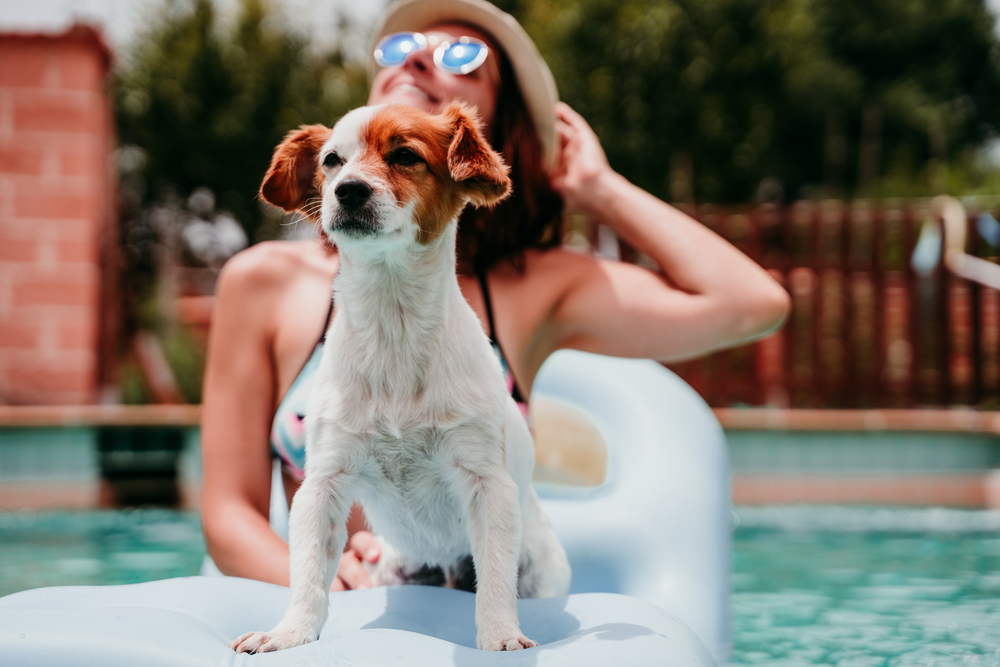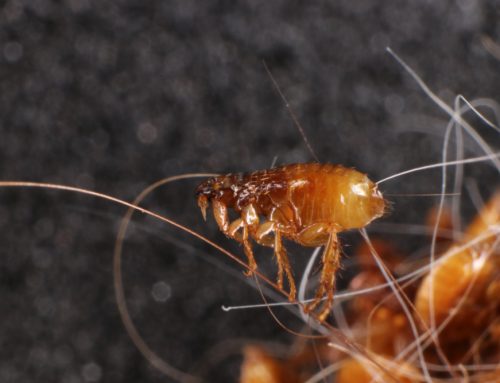The dog days of summer are finally closing in. Are your four-legged family members ready for the heat? Check out these essential pet summer safety tips from your trusted Neighborhood Veterinary Centers team.
#1: Keep your pet cool during rising temperatures
Heat is a deadly threat to pets. Unlike humans, dogs and cats don’t sweat through their skin and can sweat only a nominal amount through their paw pads, so they rely instead on evaporative cooling (i.e., panting) to lower their body temperature. This makes them much more susceptible to life-threatening heat stroke.
Protect your pet by limiting their outdoor time during hot weather and ensuring unlimited access to cool water and shade. If you will be outdoors with your pet, monitor them for heat distress (e.g., excessive panting or drooling, high heart rate, restlessness, or disorientation), take frequent breaks, and use cooling aids to keep them comfortable.
If your pet—or someone else’s—is suffering from heat-related distress, immediately take them to a cool location and contact Neighborhood Veterinary Centers.
#2: Never leave your pet unattended in a vehicle or yard
No matter how briefly you expect to be gone, never leave your pet in a parked vehicle or unattended outdoors during warm weather. Parked vehicles, including those with the windows cracked, can rise 20 degrees in as little as 10 minutes, putting your pet at risk for life-threatening heat stroke. Shaded outdoor spaces become increasingly sunny, until unattended pets have nowhere to escape the hot rays.
If you cannot fully supervise your pet, leave them at home or keep them indoors.
#3: Ease your pet’s noise anxiety during fireworks and thunderstorms
Fireworks and summer storms can traumatize noise-sensitive pets. Panicked dogs and cats may escape from their homes or slip out of their collars to escape the thunderous booming, which puts them at risk for being hit by a car or becoming lost. Some pets injure themselves through destructive or self-harming behavior (e.g., chewing, digging, or hiding).
Ease your pet’s distress by providing them with a safe, quiet interior space where they can stay until the noise subsides. Also, use pet-appeasing pheromone sprays, quiet music, and a long-lasting food-stuffed toy to help them stay calm.
Accidents happen, so ensure your pet always wears current identification (e.g., collar and tags). For the greatest security, have them microchipped at the closest Neighborhood Veterinary Centers location. A microchip offers permanent identification, while collars and tags can be lost.
#4: Supervise your pet around lakes, pools, and beaches
All water-loving pets, including strong swimmers, should be closely supervised around lakes, pools, streams, and other water sources. Also, all pets should wear a lifejacket to prevent accidental drowning should they fall in or become tired while swimming. Because playing in and around water is an intense cardiovascular activity, ensure your pet rests often and always has fresh, clean water to drink.
Carefully assess natural water sources before allowing your pet to swim or play. Avoid stagnant (i.e., still) water, filmy or slime-covered water, and especially stagnant water with blue-green algae, which occurs during the summer months and is extremely toxic. At the beach, ensure your pet does not drink the salt water.
#5: Ensure safe travels with these pet rules of the road
No summer is complete without the classic summer road trip. If your pet is your copilot, follow these important tips to ensure a smooth ride:
- Restrain your pet in a seat belt, crate, or carrier.
- Ensure your pet’s collar and tag include updated contact information.
- Update your pet’s microchip registration to ensure accurate contact information. Consider adding a secondary contact, in case you are unreachable.
- Pack vaccination records, extra food, and medications.
- Keep your pet leashed at rest stops.
- Never leave your pet in the car.
#6: Keep your pet’s paws off these cookout foods
Summer barbecues and block parties are irresistibly tempting for pets. Unfortunately, many foods found on the classic summer picnic table are unsafe for pets, including:
- Meaty bones
- Onions
- Corn on the cob
- Macadamia nuts
- Chocolate
- Alcohol
- Grapes or raisins
- Xylitol-containing sugar-free desserts
#7: Protect your pet from summertime parasites

Warm weather brings everyone to the yard—including mosquitoes, fleas, and ticks. These biting parasites target your pet and can transmit dangerous illnesses, such as heartworm disease, flea allergy dermatitis (FAD), and debilitating tick-borne infections.
Ensure your pet is protected from pesky parasites. Contact Neighborhood Veterinary Centers to refill your pet’s prescriptions, discuss preventive options, or schedule your pet’s annual wellness services.
In many ways, summer is the best season to be a pet—the kids are home from school, the weather is nice, and adventure is everywhere. However, the corresponding risks can turn fun in the sun into a disaster unless you take proper precautions. For personalized pet safety tips, consult your Neighborhood Veterinary Centers veterinary team or schedule an appointment.







Leave A Comment